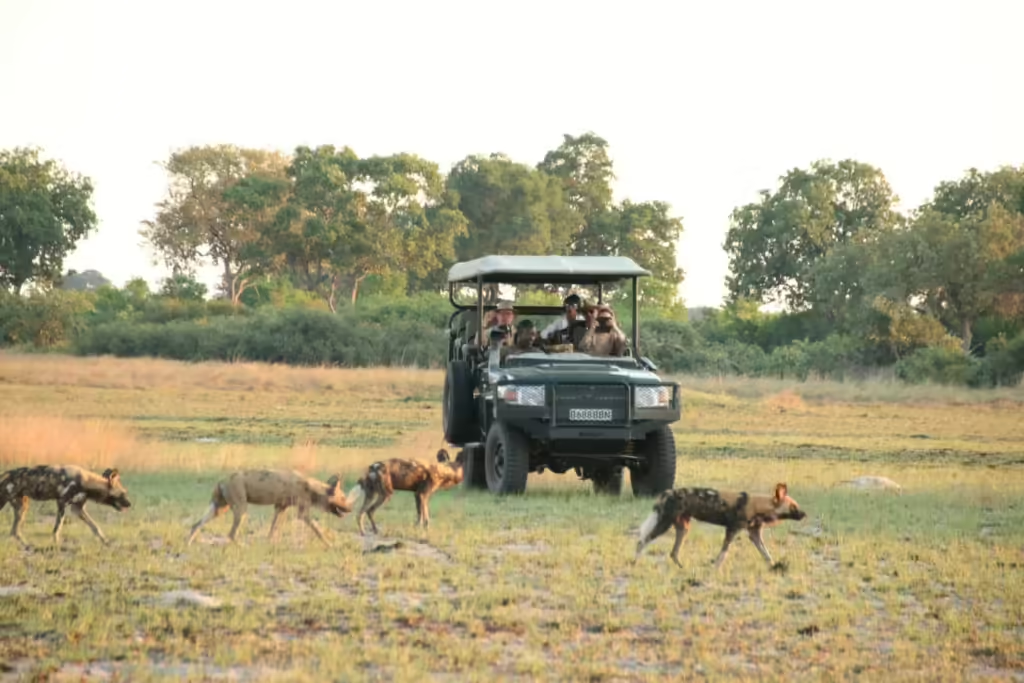
Responsible Safari: How to Minimize Impact on Wildlife
Tanzania is renowned for its diverse and abundant wildlife, drawing countless tourists from around the globe to its national parks and game reserves. While tourism plays a crucial role in supporting conservation efforts and local economies, it is essential that we engage in responsible safari practices to minimize our impact on these magnificent creatures and their habitats. This blog will guide you on how to enjoy a safari in Tanzania ethically and sustainably, ensuring that the natural beauty and wildlife can be preserved for future generations.
Understanding Wildlife Behavior
Before going on a safari, it is important to familiarize yourself with the typical behaviors and needs of the wildlife you will encounter. Understanding the natural patterns of animals, such as their migration routes, feeding habits, and social structures, helps in appreciating their behavior and knowing how to observe them without interference.
For instance, the Great Migration, one of nature’s most spectacular events, involves millions of wildebeest, zebras, and other herbivores moving across the Serengeti and Maasai Mara ecosystems in search of fresh grazing grounds. Witnessing this event requires patience and respect for the animals’ space, as any disruption can cause stress and potentially alter their natural behavior.
Choosing Responsible Safari Operators


One of the most significant steps in ensuring a responsible safari is selecting the right safari operator. Responsible operators prioritize the well-being of wildlife and the environment, often participating in or supporting conservation initiatives. Consider these things when choosing an operator:
- Accreditations and Awards: Look for operators with recognized certifications and awards for responsible tourism.
- Local Involvement: Operators who employ local guides and support local communities often have a vested interest in protecting the environment.
- Conservation Efforts: Check if the operator contributes to or is involved in wildlife conservation projects.
By choosing operators who prioritize sustainability, you help support ethical tourism practices that benefit both wildlife and local communities.
Responsible Wildlife Viewing Practices
Observing wildlife in their natural habitat is a privilege that comes with the responsibility of ensuring minimal disturbance. Here are some guidelines to follow:
- Keep Distance: Always maintain a safe distance from animals. Use binoculars or zoom lenses to get a closer look without invading their space.
- Stay Quiet: Avoid making loud noises or sudden movements that can startle animals. Speak softly and move slowly to blend into the environment.
- Do Not Feed Wildlife: Feeding animals can disrupt their natural foraging behavior and make them dependent on human food, which is not suitable for their health.
- Stay in Vehicles: Unless your guide gives permission, remain inside the safari vehicle to avoid disturbing wildlife and for your safety.
By following these practices, you help ensure that wildlife can continue their natural behaviors without human interference.
Photography Ethics


Capturing the beauty of Tanzania’s wildlife is a cherished part of the safari experience, but it must be done responsibly. Here are some tips for ethical wildlife photography:
- Use Telephoto Lenses: A telephoto lens allows you to capture detailed images from a distance, minimizing disturbance to the animals.
- Avoid Flash Photography: Flash can startle and stress wildlife. Always use natural light or adjust your camera settings to accommodate low-light conditions.
- Respect Comfort Zones: Do not force an animal to move or react for a photo. Observe and photograph animals as they are, without attempting to alter their behavior.
Minimizing Waste and Pollution
Reducing your environmental footprint during a safari is crucial for preserving Tanzania’s pristine landscapes. Here are some ways to minimize waste and pollution:
- Carry Reusable Items: Reduce single-use plastic waste by bringing reusable water bottles, utensils, and bags.
- Dispose of Waste Properly: Ensure that all waste, including biodegradable items, is disposed of in designated areas.
- Use Eco-Friendly Products: Opt for biodegradable soaps, shampoos, and sunscreens to prevent harmful chemicals from contaminating the environment.
- Limit Vehicle Use: Choose operators that use eco-friendly vehicles or participate in walking safaris to reduce carbon emissions.
Adopting these practices helps maintain the natural beauty of the landscapes you are exploring.
Educational Opportunities
A safari is not just about observing wildlife; it is also an opportunity to learn about the ecosystems and conservation challenges in Tanzania. Participating in guided tours with knowledgeable guides can significantly enhance your experience:
- Guided Tours: Choose tours led by experienced guides who can provide insights into animal behavior, conservation efforts, and local ecosystems.
- Conservation Talks: Attend talks or presentations on wildlife conservation to understand the efforts being made to protect these species.
- Interactive Experiences: Engage in activities that promote learning, such as tracking animals or visiting conservation projects.
Education fosters a deeper appreciation for wildlife and reinforces the importance of responsible tourism practices.
Supporting Local Conservation Efforts
Supporting local conservation initiatives is a powerful way to contribute to the preservation of Tanzania’s wildlife. Here are some ways to get involved:
- Donations: Contribute to reputable conservation organizations working in Tanzania.
- Volunteer Programs: Participate in volunteer programs that support wildlife conservation and community development.
- Adopt an Animal: Many organizations offer adoption programs where you can financially support the care of a specific animal.
- Eco-Friendly Accommodations: Stay in lodges and camps that adhere to sustainable practices and support local conservation efforts.
Conclusion
A responsible safari in Tanzania requires mindfulness and respect for the natural world. By understanding wildlife behavior, choosing ethical operators, practicing responsible viewing and photography, minimizing waste, and supporting conservation efforts, you can enjoy an unforgettable safari experience while ensuring the protection and preservation of Tanzania’s remarkable wildlife.
Maximilian Adventures is committed to sustainable and responsible tourism practices. Join us in preserving Tanzania’s natural beauty and wildlife. Together, we can make a positive impact on preserving Tanzania’s wonders for future generations. Book your responsible safari with Maximilian Adventures today and be part of the change.
Recent Posts
Best Usdt Casinos With Instant Deposit & No-kyc 750
Where to Stay in Tanzania | Lodges, Resorts and Campsites
Why Chapwani Island Should Be on Your Travel List in 2025

Safari



